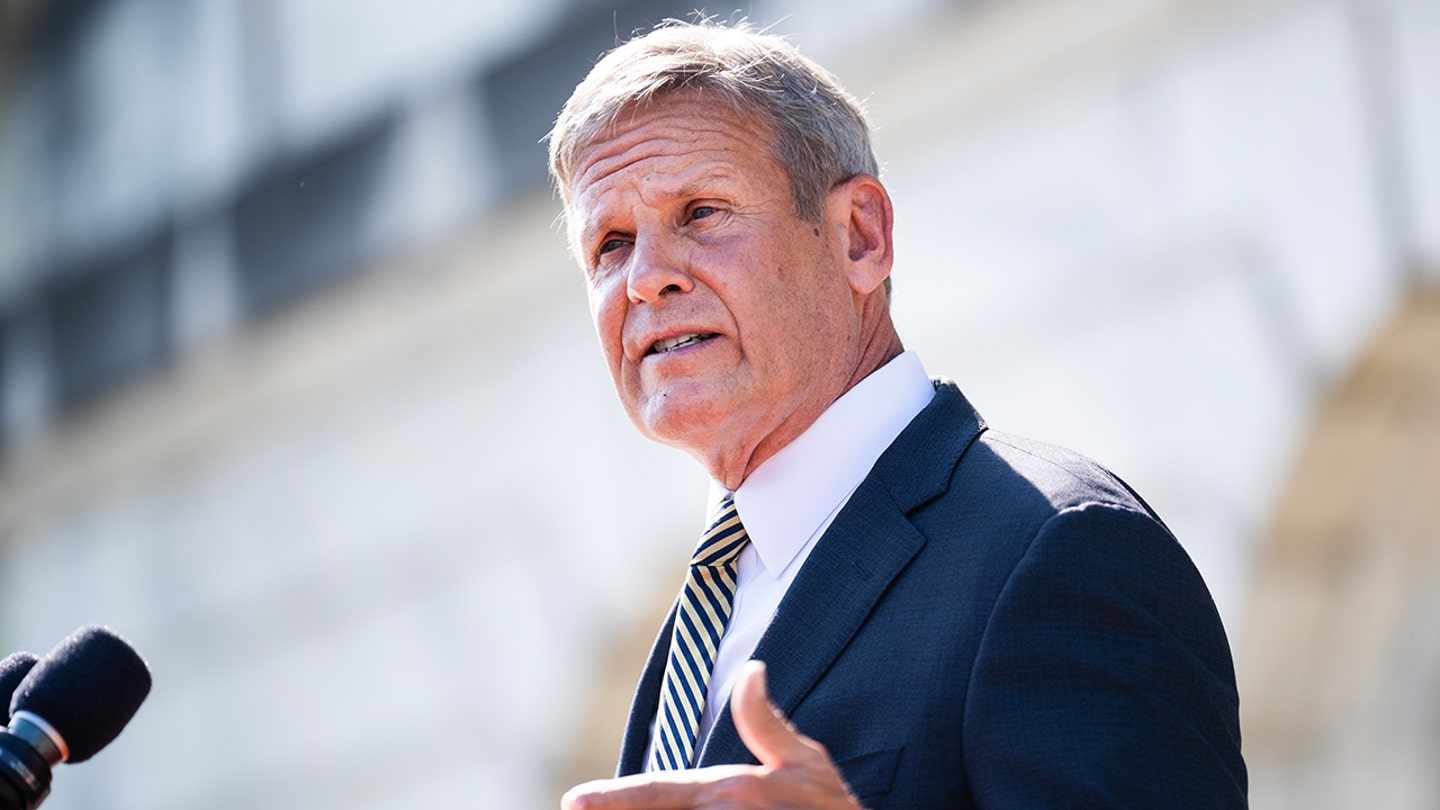NEWYou now have the option to listen to news articles!
A federal judge has halted a section of a Tennessee law that criminalized adults assisting minors in obtaining out-of-state abortions without parental consent.
The law, known for targeting “abortion trafficking of a minor,” was implemented in 2024 by Republican Gov. Bill Lee, with backing from the GOP-controlled legislature. It made certain actions towards pregnant, unemancipated minors by adults who are not their parents or legal guardians illegal if they help them access abortions – even if the procedure is legal in another state.
U.S. Circuit Judge Julia Gibbons, a nominee of former President George W. Bush, raised concerns about the law’s “recruitment provision,” which criminalizes providing information to minors on how to obtain an abortion out of state or assisting minors in making travel arrangements. In a summary judgment issued on Friday, Gibbons agreed that the provision violates the First Amendment as it “prohibits speech promoting lawful abortion while allowing speech discouraging lawful abortion.”
Federal Judge Slaps Temporary Restraining Order on Mississippi DEI Ban
Tennessee Attorney General Jonathan Skrmetti leaves a press conference discussing the U.S. Supreme Court’s 6-3 decision that upheld Tennessee’s ban on gender transition treatments for minors in Nashville, Tennessee, on Wednesday, June 18, 2025. (The Tennessean )
“That is impermissible viewpoint discrimination, which the First Amendment rarely tolerates – and does not tolerate here,” Gibbons, who serves on the Sixth Circuit Court of Appeals, stated.
Gibbons permanently blocked the enforcement of the provision that prohibited encouraging a minor to seek a legal out-of-state abortion.
“The recruitment provision targets speech based on its message – that abortion is safe, common, and normal – and available in certain states – and is presumed to be unconstitutional,” the judge added.
Gibbons mentioned that she was called upon to preside over this lower court case after four judges from the Middle District of Tennessee recused themselves. If Tennessee decides to appeal the ruling, the case will proceed to the U.S. Court of Appeals for the Sixth Circuit.
The Tennessee attorney general had previously appealed a November ruling by U.S. District Judge Aleta Trauger that temporarily blocked the recruitment provision. This appeal is still pending in the Sixth Circuit Court.
The lawsuit was initiated by Democratic state Rep. Aftyn Behn, who is a licensed social worker, and Rachel Welty, a Nashville attorney and pro-abortion advocate.
“Because plaintiffs want to discuss legal abortions and assist minors in obtaining legal, out-of-state abortions, their intended speech is protected under the First Amendment,” Gibbons stated.

Tennessee Gov. Bill Lee signed the anti-abortion trafficking law last year. (Tom Williams/CQ-Roll Call, Inc via Getty Images)
White House Praises SCOTUS Ruling Upholding TN Ban on Transgender Treatments: ‘Victory for America’s Children’
In response to the verdict, Welty and Behn’s lead attorney, Daniel A. Horwitz, remarked that Gibbons’ “well-reasoned opinion safeguards the right of all Tennesseans to share accurate information about abortion without the fear of facing criminal charges for doing so.”
“It also confirms that the government cannot enact broad laws that criminalize speech based on its disagreement with the speaker’s perspective,” he added in a statement. “This is a significant win for Ms. Welty, Representative Behn, and all Tennesseans who believe that the government should not prosecute individuals for sharing truthful information.”
In the final ruling, Gibbons, however, dismissed the plaintiffs’ argument that the law is too vague to be considered constitutional under the Due Process Clause. The judge sided with the state on this matter, stating that the law clearly outlines what behavior is prohibited. Gibbons did not prevent the enforcement of sections of the law that criminalize physically transporting minors across state lines for an abortion or harboring a minor to assist them in obtaining an abortion.

Tennessee Attorney General Jonathan Skrmetti, left, with Senate Majority Leader Jack Johnson, R-Franklin, look on during a press conference discussing the U.S. Supreme Court’s 6-3 decision which upheld Tennessee’s ban on gender transition treatments for minors at the state capitol on Wednesday, June 18, 2025. (The Tennessean )
“The court rules in favor of the plaintiffs on their freedom of speech claims and prohibits the implementation of the recruitment aspect of the statute,” Gibbons wrote. “However, the statute is not deemed void for vagueness. Therefore, the court rules in favor of the defendants on the plaintiffs’ vagueness claim.”
The law does not apply to the minor’s parent or legal guardian, licensed medical providers in emergency situations, or law enforcement acting within their official capacity.
Violations of the law constitute a Class A Misdemeanor, punishable by up to 11 months and 29 days in jail or a fine of up to $2,500. The statute states that violators “may be held liable in a civil action for the wrongful death of an unborn child who was aborted.”
Click here to get the news app
Following the U.S. Supreme Court’s decision to overturn Roe v. Wade, Tennessee enacted a “trigger law,” effectively prohibiting most abortions, with limited exceptions.
Danielle Wallace is a breaking news and politics reporter at Fox News Digital. Story tips can be sent to danielle.wallace@fox.com and on X: @danimwallace.





